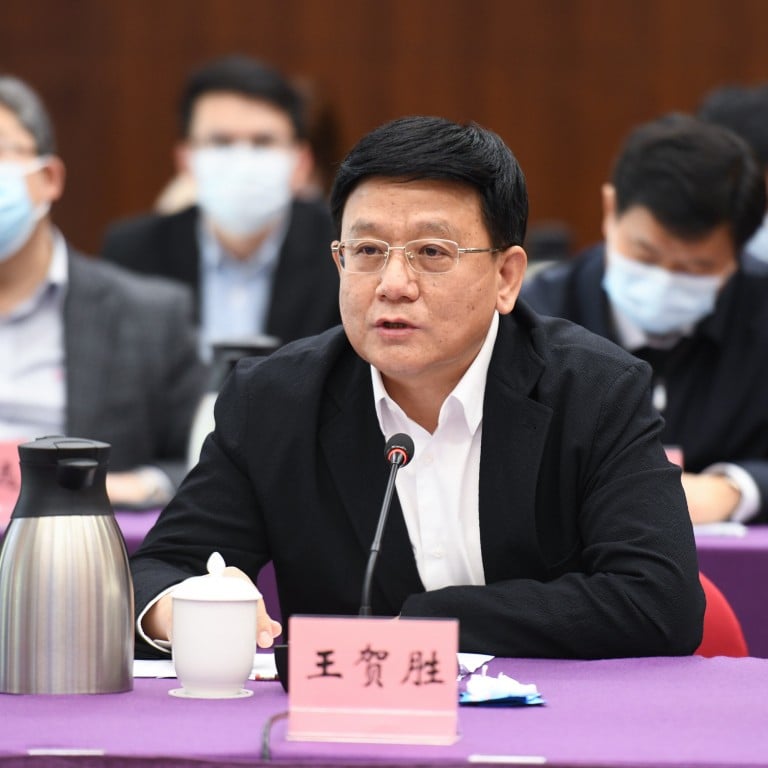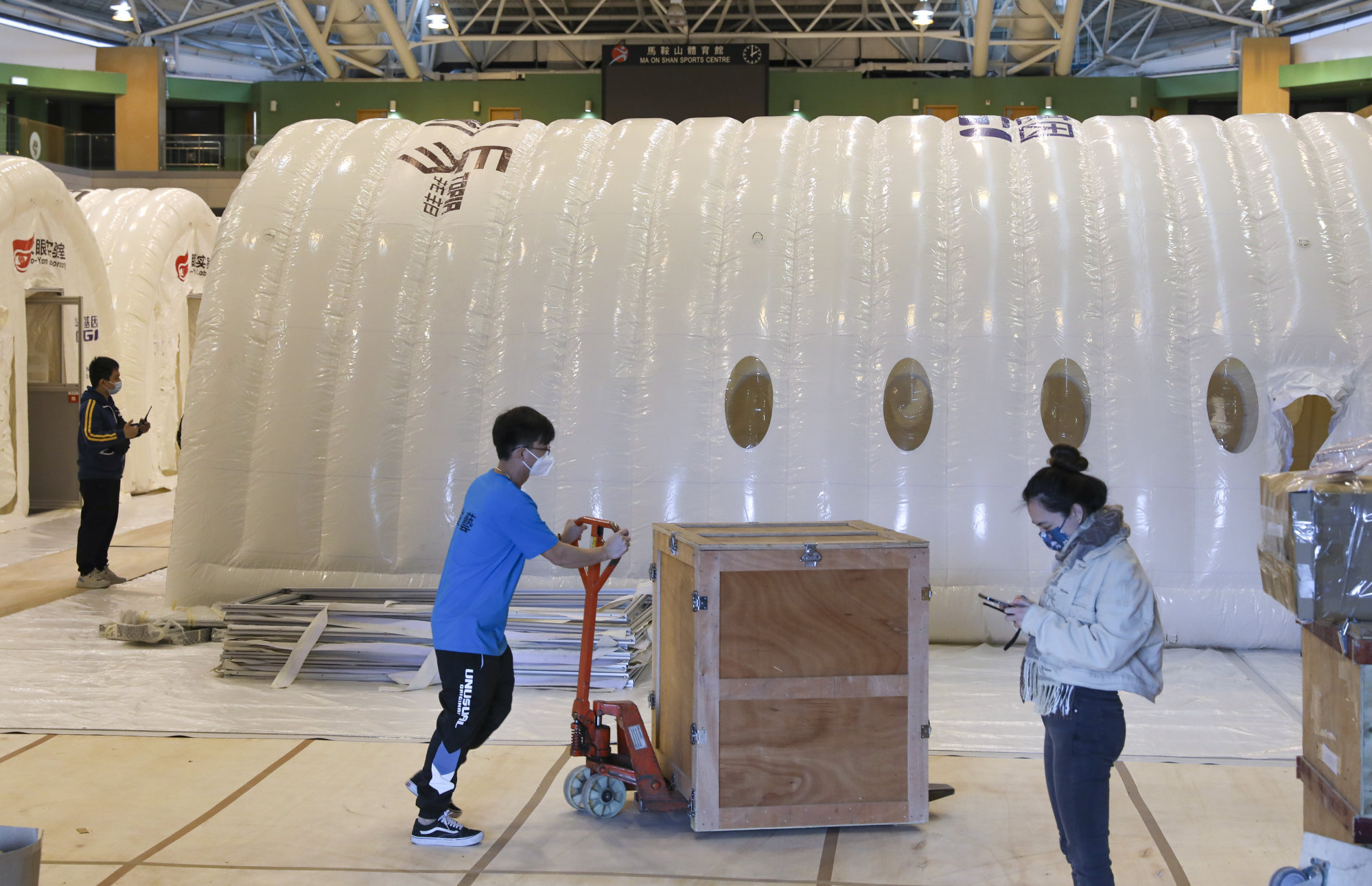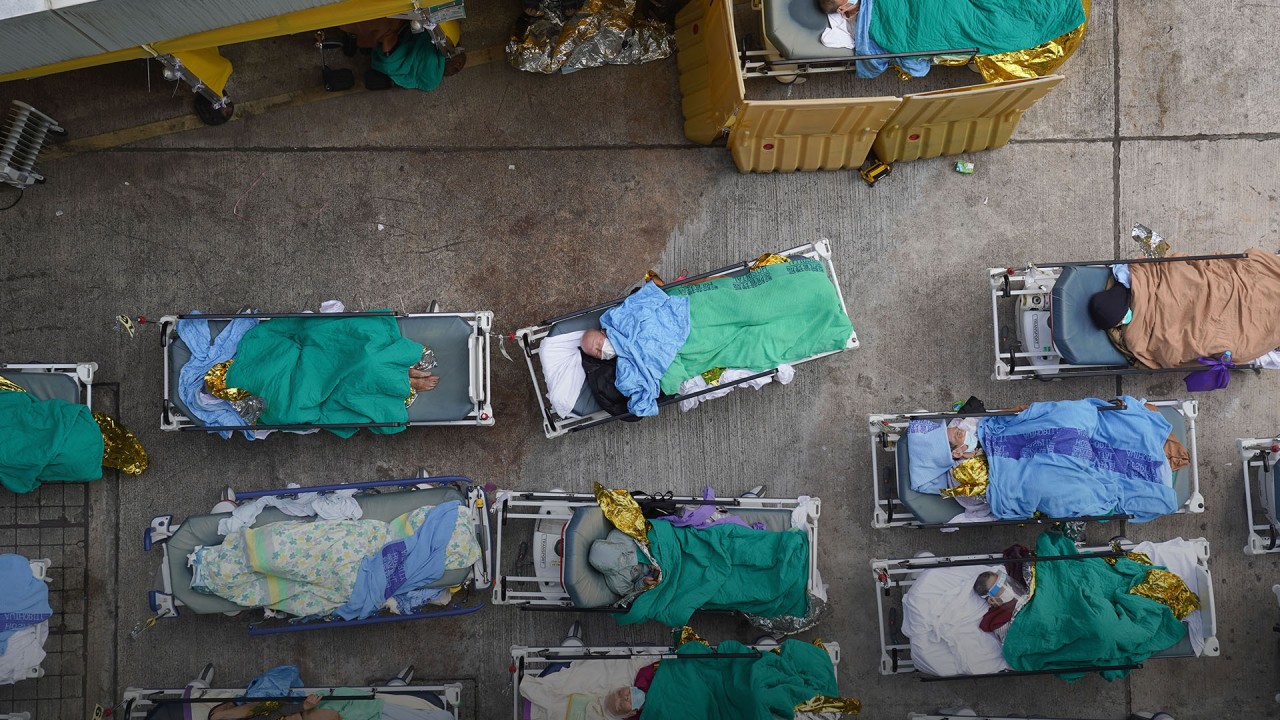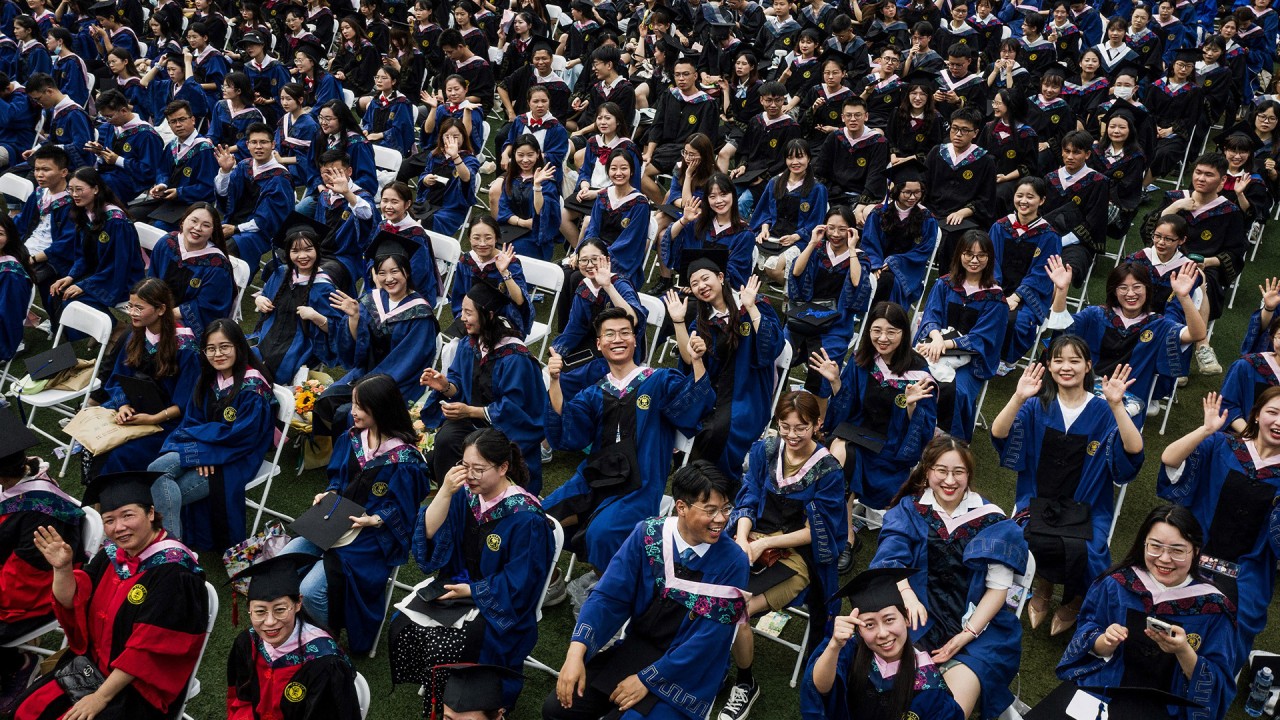
Coronavirus: Beijing expert who beat Wuhan outbreak now on Hong Kong front line against Covid-19
- Wang Hesheng was sent to Wuhan in early 2020 to rescue a public health system on the brink of collapse with the newly discovered coronavirus disease
- Two years on, he is in Shenzhen, tasked with helping to do the same for Hong Kong where cases and misery are soaring
While Xia, head of the State Council’s Hong Kong and Macau Affairs Office, has overall charge of the top-level coordination group, Wang – also a vice-minister at the National Health Commission (NHC) – has been called in to repeat what he achieved two years ago in Wuhan, the Hubei capital where the Sars-CoV-2 coronavirus was discovered in late 2019.
That is, find ways to rescue a public health system on the brink of collapse, as Hong Kong’s hospitals and health workers are brought to their knees by thousands of patients seeking admission each day, while tens of thousands of others infected desperately wait at home for help.
Hong Kong facing record 7,000 Covid-19 cases, 7,000 more preliminary positive
In February 2020, Wang was parachuted from his vice-ministerial post to the front line in Wuhan, where he doubled up as the Hubei provincial health chief and member of the Communist Party’s local standing committee. His appointment was part of Beijing’s major reshuffle of Hubei’s top leadership after they had failed to contain the spread of the virus in the month following the initial outbreak.
The swiftly set up team of senior officials led by Vice-Premier Sun Chunlan decided to lock down all major Hubei cities, including Wuhan with its 12 million people, in an attempt to cut transmission chains.
Wang, meanwhile, was focused on resuming the operation of local hospitals, mobilising and allocating medical resources pouring in from other parts of the country, to support stretched frontline health workers with protective gear and helping hands. He was also in charge of citywide universal testing programmes across Hubei to screen out asymptomatic patients and quarantine them in speedily built makeshift hospitals.
Despite initial hiccups and complaints from residents about the inconvenience caused by the harsh lockdown, the stringent measures paid off. Hubei province lifted all lockdowns after nearly two months in early April, as it claimed to have no more Covid-19 patients. Of the 68,000 infected in China’s first-ever outbreak of the disease, about 4,500 had died.
Wang, a public health graduate of Tianjin Medical College, is not only an expert in the field but also has a good human touch, according to a mainland health official with experience of working with him.
“Unlike many doctors who are only good at medical practice, Wang is [also] a very firm administrator. He has a way of identifying key priorities amid the chaos and setting up the right structure to allow the teams to work on them. That is how he managed to fix the Hubei crisis,” the official said.
Officials shortlist 3 sites for construction of Hong Kong mega-hospital
Beijing’s calling in a “big gun” like Wang is indicative of the top leadership’s grave concerns over the pandemic situation in Hong Kong. The worry is that it is getting “rapidly out of hand and posing a major risk of spillover to the mainland”, according to Junfei Wu, a researcher at the Hong Kong China Economic and Cultural Development Association, a Hong Kong think tank.
“With a daily increment of over 3,000 [cases], Hong Kong’s total confirmed infections, now standing at 40,000 plus, are set to surpass the total in the [2020] Wuhan outbreak. There is certainly a need to bring Wang, who has prior experience to contain an outbreak of such a scale, to the front line,” Wu said.
But Hong Kong – unlike Wuhan – is a special administrative region (SAR) of China. Xie Maosong, a senior researcher with Tsinghua University’s National Strategy Institute, said Wang was facing a very different challenge this time as he needed to navigate within the boundary of “one country, two systems”.

“When Wang was sent to Hubei, he was also made a provincial party committee member besides [being given] the provincial health chief’s job. The party committee position gave him a very strong mandate to carry out his work.
“But, in tackling Hong Kong’s pandemic from Shenzhen, Wang has to do everything through the tripartite coordination framework and he cannot give direct orders to the Hong Kong SAR health team.”
To help officials decide on their course of action, the mainland experts were likely to share their experience of organising universal testing for megacities like Wuhan and Xian, Xie said, as Hong Kong needed to speedily overcome “a steep learning curve” in its Covid-19 fight.



